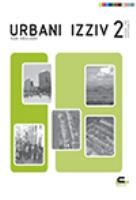Inequality in heritage centres: Analysing the reality in Mexican cities
Inequality in heritage centres: Analysing the reality in Mexican cities
Author(s): Marina de la Torre, Navarrete DavidSubject(s): Rural and urban sociology, Globalization
Published by: Urbanistični inštitut Republike Slovenije
Keywords: heritage preservation; citizenship; gentrification; exclusions; historical centres
Summary/Abstract: Globalisation has had an impact in Mexican cities, creating new urban structures. Therefore, globalisation modifies the relationships that individuals establish with the territory through the construction of new citizenship practices. With a multidisciplinary approach, we develop a theoretical analysis that allows us to understand the new condition of Mexican historical centres caused by the challenges imposed by becoming a World Heritage Site. We apply a theoretical construct that allows us to portray certain aspects of reality in Mexican cities regarding the construction of democratic and participative practices of citizenship. We analyse this phenomenon based on two theoretical points of departure: a) the process of becoming a heritage site (i.e., tourism/gentrification) and b) the theory of social capital. The results show that the new situation implies a transformation in the space, time and economy of the heritage site. In the historical centre, the political actors and institutions promote centralist, transnational and urban conservationist development. An urbanism is created that prioritises conservation to the benefit of tourists and to the detriment of enjoyment, use and participation by the local population. Furthermore, there is an erosion of the social fabric through processes of exclusion and gentrification, which place citizenship in peril.
Journal: Urbani izziv
- Issue Year: 27/2016
- Issue No: 2
- Page Range: 161-170
- Page Count: 10
- Language: English

